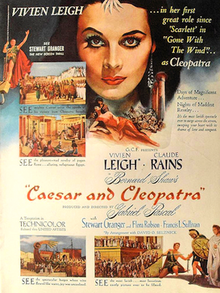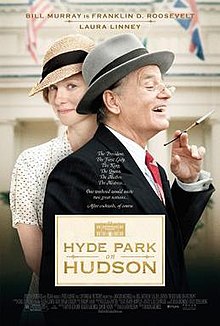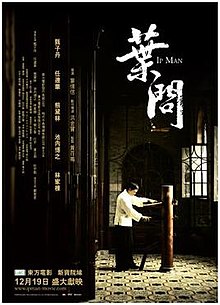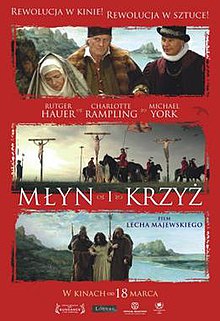A quick definition for historical films
History film (historical film)
A fiction film showing past events or set within a historical period. This extensive genre shares territory with the biopic, costume drama, heritage film, and epic film. In the 1910s the trade press contained adverts for ‘historicals’: large‐scale melodramatic feature films based on historical stage plays. A large number of internationally successful history films were produced in Italy during this period, while in the US, the films of Cecil B. DeMille and D.W. Griffith became synonymous with the genre; in fact, then president Woodrow Wilson described Griffith’s The Birth of a Nation (1915), as ‘like writing history with lightning’. The films of Sergei Eisenstein in the USSR and Carl Dreyer in Denmark are also celebrated for their complex engagements with history (see soviet avant garde).
During the 1930s the historical film was popular in Britain, especially the work of director/producer Alexander Korda and a cycle of historical costume dramas made by the Gainsborough film studio. In Hollywood, history films, especially the biopic, were a staple genre of the studio system: if the western and the war film are also considered as historical films, the history film is one of Hollywood’s largest and most enduring genres. Indeed, one of the most commercially successful films of all time, Gone With the Wind (Victor Fleming, 1939), is a history film set during the US Civil War. In general, Hollywood’s history films tend to privilege the meticulous reconstruction of surface detail and focus their stories on well‐known individuals who shape events through sheer force of will, usually combined with a strong moral view of history. However, New Hollywood variants of the genre—including Bonnie and Clyde (Arthur Penn, 1967), Sounder (Martin Ritt, 1972), and Walker (Alex Cox, 1987)—challenged many of these conventions. The genre continued to thrive in Hollywood during the 1950s, the heyday of the widescreen, Technicolor historical epic. History films also remained a staple in a large number of national cinemas: in Japan, the chambara, or sword‐fighting film, formed part of an East Asian historical film tradition (see martial arts film). The development of CGI in the 1990s—and especially its ability to reproduce historical cityscapes and landscapes, as well as replace the need for large casts of extras—made the recreation of the past on film more affordable, leading to a rise in history and epic film production, marked most clearly by the commercial success of Titanic (James Cameron, 1997). A cycle of East Asian epic historical films has also found favour with audiences worldwide (see asian epic cinema). ...
Kuhn, A., & Westwell, G. (2020). History film. In A Dictionary of Film Studies. Oxford University Press. Retrieved 7 Aug. 2023
Finding library resources for historical films
The Jones Media Center has a collection of historical films for viewing. To find them, you can do a subject search for "historical films." To find books about historical films, look at the subject headings that contain "history and criticism." These books will discuss historical films in general or those produced in different countries. To find film resources on a specific person, you can do a subject search and add "drama" with your other search terms.
- historical filmsCall number range PN 1995.9 .H5 on Baker Level 4.
Introductory reading(s)
Box office archaeology: refining Hollywood's portrayals of the past by
Call Number: Baker-Berry PN 1995.9 .H5 B69 2007ISBN: 9781598740561"How true is it?" is a common refrain of patrons coming out of movie theatres after the latest film on pirates, Vikings, or mummies. While Hollywood usurps the past for its own entertainment purposes, archaeologists and historians know a lot about many of these subjects, digging up stories often more fascinating than the ones projected on screen. This distinguished group of archaeologists select key subjects and genres used by Hollywood and provide the historical and archaeological depth that a movie cannot--what really happened in history. ...Historical film: a critical introduction by
Call Number: Baker-Berry PN 1995.9 .H5 S78 2013ISBN: 9781847884985Although precise definitions have not been agreed on, historical cinema tends to cut across existing genre categories and establishes an intimidatingly large group of films. In recent years, a lively body of work has developed around historical cinema, much of it proposing valuable new ways to consider the relationship between cinematic and historical representation. However, only a small proportion of this writing has paid attention to the issue of genre. In order to counter this omission, this book combines a critical analysis of the Hollywood historical film with an examination of its generic dimensions and a history of its development since the silent period. ...History on film/film on history by
Call Number: Baker-Berry PN 1995.2 .R667 2006ISBN: 9780582505841Fictional films tell true historical stories. Film and History is a compelling and unique overview of the cinema and its relationship with history, ranging from the ancient world to the modern day. This is the first book of its kind to offer such a broad historical and theoretical portrayal of the rapidly-growing sub field of history and film. ...The history on film reader by
Call Number: Baker-Berry PN 1995.2 .H57 2009ISBN: 9780415462198Historical film studies is a burgeoning field, with a large and ever growing number of publications from across the globe. The History on Film Reader distills this mass of work, offering readers an introduction to just under thirty of the most critical and representative writings on the relationship between film and history. ...The Japanese period film: a critical analysis by
Call Number: Baker-Berry PN 1995.9 .H5 T46 2008ISBN: 9780786431366This study examines the history of the Japanese period film and proposes that a powerful relationship exists between the past and present in Japan's narrative tradition. ...Lights, camera, history: portraying the past in film by
Call Number: Baker-Berry PN 1995.2 .L54 2007ISBN: 9781585445806This important volume addresses a number of central topics concerning how history is depicted in film. In the preface, the volume editors emphasize the importance of using film in teaching history: students will see historical films, and if they are not taught critical viewing, they will be inclined simply to accept what they see as fact. Authors of the individual chapters then explore the portrayal of history--and the uses of history--in specific films and film genres. ...
Selected book title(s)
American history through Hollywood film: from the Revolution to the 1960s by
Call Number: PN1995.9.U64 S76 2013ISBN: 9781441175922American History through Hollywood Film offers a new perspective on major issues in American history from the 1770s to the end of the twentieth century and explores how they have been represented in film. Melvyn Stokes examines how and why representation has changed over time, looking at the origins, underlying assumptions, production, and reception of an important cross-section of historical films. ...The ancient world in the cinema by
Call Number: Baker-Berry PN 1995.9 .H5 S6 2001ISBN: 9780300083378This entertaining and useful book provides a comprehensive survey of films about the ancient world, from The Last Days of Pompeii to Gladiator. Jon Solomon catalogues, describes, and evaluates films set in ancient Greece and Rome, films about Greek and Roman history and mythology, films of the Old and New Testaments, films set in ancient Egypt, Babylon, and Persia, films of ancient tragedies, comic films set in the ancient world, and more. ...Based on a true story: Latin American history at the movies by
Call Number: Baker-Berry PN 1995.9 .L37 B37 1997ISBN: 9780842027816Combining history with discussions of dramatic cinema, Based on a True Story: Latin American History at the Movies examines how film has portrayed Latin America from the late fifteenth century to the present. ...Bringing history to life through film by
Call Number: Baker-Berry PN 1995.9 .H5 B74 2014ISBN: 9781442229631Whether re-creating an actual event or simply being set in a bygone era, films have long taken liberties with the truth. While some members of the audience can appreciate a movie without being distracted by historical inaccuracies, other viewers are more discerning.Figuring the past: period film and the mannerist aesthetic by
Call Number: eBookISBN: 9789089642820This innovative analysis of period film presents a new way to examine the ways in which contemporary cinema recreates the historical past. Exploring the relationship between visual motifs and cultural representation, Figuring the Past is a selection of detailed case studies that explore three key figures--the house, the tableau, and the letter.Historical comedy on screen: subverting history with humour by
Call Number: Baker-Berry PN 1995.9 .C55 H57 2011ISBN: 9781841503677In 1893 Friedrich Engels branded history the cruelest goddess of all. This sorrowful vision of the past is deeply rooted in the Western imagination, and history is thus presented as a joyless playground of inevitability rather than a droll world of possibilities. There are few places this is more evident than in historical cinema which tends to portray the past in a somber manner. Historical Comedy on Screen examines this tendency paying particular attention to the themes most difficult to laugh at and exploring the place where comical and historical storytelling intersect.
Finding scholarly articles & journals
Articles and other writings about movies can be found in many publications. We don't have any periodicals that look exclusively at historical films in our collections. You can use Film & Television Literature Index to find articles or use the search box at the top of the page.
 Film & television literature index by Call Number: Electronic resourceUse this index to find articles about historical films or history on film.
Film & television literature index by Call Number: Electronic resourceUse this index to find articles about historical films or history on film. Web of science citation databases by Call Number: Electronic resourceThe online version of 3 separate ISI indexes: Arts & Humanities Citation Index, Science Citation Index and, Social Sciences Citation Index.
Web of science citation databases by Call Number: Electronic resourceThe online version of 3 separate ISI indexes: Arts & Humanities Citation Index, Science Citation Index and, Social Sciences Citation Index.
Selected list of historical films
Find more historical films in the library's online catalog.
 Argo by Call Number: Jones Media DVD #15770On November 4, 1979, Iranian militants storm the American embassy in Tehran and capture dozens of American hostages, sparking a 444-day ordeal. There's a little-known footnote to the crisis: six Americans escape and a mid-level CIA agent named Antonio Mendez devises an ingenious yet incredibly risky plan to rescue them.
Argo by Call Number: Jones Media DVD #15770On November 4, 1979, Iranian militants storm the American embassy in Tehran and capture dozens of American hostages, sparking a 444-day ordeal. There's a little-known footnote to the crisis: six Americans escape and a mid-level CIA agent named Antonio Mendez devises an ingenious yet incredibly risky plan to rescue them.Batismo de sangue by
Call Number: Jones Media DVD #9307Brazil was ruled by military dictatorship from mid 60's to mid 80's. In the 60's, the Dominican friars Tito, Betto, Fernando and Ivo help leftist organizations, but they are arrested and tortured by the chief of political and security police Fleury, who is trying to arrest the leader Carlos Marighella. Tito and Fernando are submitted to the torture and betray Marighella, who is ambushed and executed by Fleury. In 1973, the exiled friar Tito commits suicide in France. Caesar and Cleopatra (1945) by Call Number: Jones Media DVD #1868Experience a lavish epic about love and politics in ancient Rome and Egypt.
Caesar and Cleopatra (1945) by Call Number: Jones Media DVD #1868Experience a lavish epic about love and politics in ancient Rome and Egypt.Dalton Trumbo's Johnny got his gun by
Call Number: Jones Media DVD #9420ISBN: 9781603992602After a shell leaves his body mangled on the final day of World War I, young Joe Bonham lies trapped in a hospital bed. He is a fully conscious quadruple amputee who cannot speak, hear or see. He is left to wander within his own mind and goes between his harsh reality and memories of a happier life long gone. Delve into the mind of a man lost somewhere on the edges of sanity and insanity, life and death. Hyde Park on Hudson by Call Number: Jones Media DVD #15928As Great Britain faces an imminent war with Germany, US President Franklin D. Roosevelt and his wife, Eleanor, invited the King and Queen of England for a weekend at their home in upstate New York. But during the first-ever visit of a reigning British monarch to America, international affairs must be juggled with the complexities of FDR's domestic establishment, as wife, mother, and mistresses all conspire to make the royal trip an unforgettable one.
Hyde Park on Hudson by Call Number: Jones Media DVD #15928As Great Britain faces an imminent war with Germany, US President Franklin D. Roosevelt and his wife, Eleanor, invited the King and Queen of England for a weekend at their home in upstate New York. But during the first-ever visit of a reigning British monarch to America, international affairs must be juggled with the complexities of FDR's domestic establishment, as wife, mother, and mistresses all conspire to make the royal trip an unforgettable one. Ip man by Call Number: Jones Media DVD #13184Set in Fo Shan, China during the Sino-Japanese War, Ip Man vividly brings to life the brutality of the infamous Japanese occupation, where once proud men are forced to fight [to the] death for a precious bag of rice. Defined by courage and humility, Ip Man, whose fighting skills are revered all over China, rises to the fore front. Upon refusing to teach his martial arts to the invading Japanese soldiers, he is forced to fight for the honor of his country in a series of battles that will culminate in a kill-or-be-killed showdown with Japan's greatest fighter.
Ip man by Call Number: Jones Media DVD #13184Set in Fo Shan, China during the Sino-Japanese War, Ip Man vividly brings to life the brutality of the infamous Japanese occupation, where once proud men are forced to fight [to the] death for a precious bag of rice. Defined by courage and humility, Ip Man, whose fighting skills are revered all over China, rises to the fore front. Upon refusing to teach his martial arts to the invading Japanese soldiers, he is forced to fight for the honor of his country in a series of battles that will culminate in a kill-or-be-killed showdown with Japan's greatest fighter. Made in Dagenham by Call Number: Jones Media DVD #12424In 1968, the female workers at the Ford Dagenham car plant, walked out in protest against sexual discrimination. Their actions played a major role in the battle for equal pay, both nationally and internationally.
Made in Dagenham by Call Number: Jones Media DVD #12424In 1968, the female workers at the Ford Dagenham car plant, walked out in protest against sexual discrimination. Their actions played a major role in the battle for equal pay, both nationally and internationally. The mill & the cross by Call Number: Jones Media DVD #14252Uses digial effects and immersive period detail to transport viewers inside Pieter Bruegel's famous 1564 painting, The Way to Calvary, where Bruegel himself tours the canvas discussing the various images and the meanings behind them, allowing viewers to experience daily life in turbulent 16th century Flanders.
The mill & the cross by Call Number: Jones Media DVD #14252Uses digial effects and immersive period detail to transport viewers inside Pieter Bruegel's famous 1564 painting, The Way to Calvary, where Bruegel himself tours the canvas discussing the various images and the meanings behind them, allowing viewers to experience daily life in turbulent 16th century Flanders. Night catches us by Call Number: Jones Media DVD #11717In 1976, complex political and emotional forces are set in motion when a young man returns to the race-torn Philadelphia neighborhood where he came of age during the Black Power movement.
Night catches us by Call Number: Jones Media DVD #11717In 1976, complex political and emotional forces are set in motion when a young man returns to the race-torn Philadelphia neighborhood where he came of age during the Black Power movement. Zero dark thirty by Call Number: Jones Media DVD #15860Chronicles the decade-long search for Osama bin Laden following the September 2001 attacks, and his death at the hands of Navy SEAL Team 6.
Zero dark thirty by Call Number: Jones Media DVD #15860Chronicles the decade-long search for Osama bin Laden following the September 2001 attacks, and his death at the hands of Navy SEAL Team 6.

 Want an easy way to keep up with the journal literature for all facets of Film Studies? And you use a mobile device? You can install the BrowZine app and create a custom Bookshelf of your favorite journal titles. Then you will get the Table of Contents (ToCs) of your favorite journals automatically delivered to you when they become available.
Want an easy way to keep up with the journal literature for all facets of Film Studies? And you use a mobile device? You can install the BrowZine app and create a custom Bookshelf of your favorite journal titles. Then you will get the Table of Contents (ToCs) of your favorite journals automatically delivered to you when they become available. 